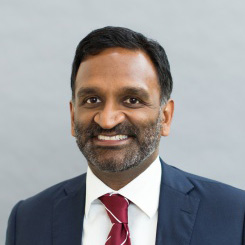Last Saturday Pope Benedict XVI addressed a group called Italian National Civil Protection, made up largely of volunteers. This is the organization that provided much of the crowd control at two of Rome’s largest public events, the World Youth Day in 2000, and the funeral of Pope John Paul II in 2005. (I was in Rome for both events and can personally attest to the surprising order these volunteers brought. If only the same order could be seen in everyday Roman life … )
Benedict took the opportunity to remind the volunteers of their particular vocation to protect persons and their dignity and also compared their service to that of the Good Samaritan. These volunteers choose to serve when others decline out of indifference or hardness of heart.
The Holy Father then reiterated one of the central themes of his first encyclical Deus Caritas Est, that while the State is responsible for the provision of justice, justice is not enough to make a society fully Christian. A Christian society must not rely on the State to provide what is most essential, i.e. charity, and must go beyond the strict provision of rights and duties. Here’s the key paragraph from Saturday’s talk, translated from the Italian:
As the Gospel reminds us, love of neighbor cannot be delegated: The State and politics, even with the necessary concern for welfare, cannot substitute it. As I wrote in the encyclical Deus Caritas Est: “Love will always prove necessary, even in the most just society. There is no ordering of the State so just that it can eliminate the need for a service of love. Whoever wants to eliminate love is preparing to eliminate man as such. There will always be suffering which cries out for consolation and help. There will always be loneliness. There will always be situations of material need where help in the form of concrete love of neighbor is indispensable.” (n. 28). This recalls and will always recall personal and voluntary commitment. Because of this, volunteers are not “stopgaps” in the social net, but persons who truly contribute to outlining the human and Christian face of society. Without volunteers, the common good and society cannot last for long, because their progress and dignity depend in large measure on those persons who do more than their strict duty.
Of course, most people assume that the State is and should be responsible, at a minimum, for public order and safety. But with his praise and gratitude for the volunteers, the Pope is not suggesting that they should supplant the state’s legitimate functions. However, these legitimate functions rarely, if ever, incorporate a ministry of love, which is essential to a humane social order. When the volunteers successfully provide order and safety for millions of visitors to Rome, they are doing so much more than their “strict duty.” Indeed, they are showing us what a true “service of love” looks like.

